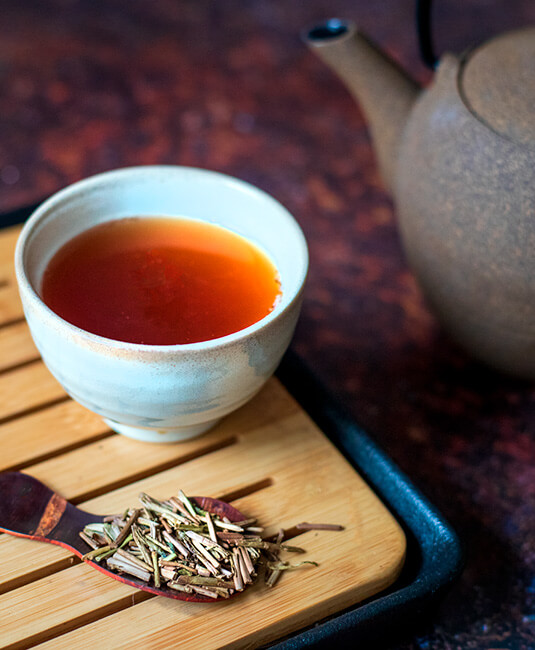
Can tea help with digestion?
Several experiments carried out with green tea extracts suggest that it reduces the digestion and absorption of fats, but also of starch at the intestinal level. Other studies clearly indicate that it increases gastric secretion, mainly through its local chemical action on the stomach lining. As a result, it may potentially aid digestion, especially following a substantial or overly rich meal.
A recent British study has also highlighted the advantageous impact of green tea on the gut's bacterial flora, known as the microbiota. According to the findings, daily consumption of green tea may lead to positive changes in the composition of the microbial community, restoring a healthier balance between beneficial bacteria and harmful pathogens. Consequently, this could potentially help combat intestinal disorders.

Can tea be difficult to digest?
Similar to any beverage, excessive consumption of tea after a meal can potentially hinder the digestive process by increasing the size of the food bolus and diluting gastric juices. It is better to settle for a cup at the end of a meal and, for heavy consumers, schedule other tea breaks outside of mealtime.
Incorporating milk into your tea can also potentially lead to digestive discomfort. In such instances, it is not the tea at fault, but rather the milk, which can be challenging to digest and may pose difficulties for some individuals, particularly those with lactose intolerance or sensitivity.
Multiple recent studies have consistently debunked the purported association between tea consumption and gastrointestinal conditions like gastritis, reflux, dyspepsia, or heartburn. In fact, flavonoids, particularly catechins found predominantly in green tea, are believed to play a robust protective role against digestive tract cancers. They achieve this by inhibiting the proliferation of Helicobacter Pylori bacterial colonies. However, it's crucial to exercise caution and avoid consuming tea at excessively high temperatures, as this can potentially harm the esophagus, which may eventually lead to the development of cancer.
What tea should you drink to fight stomach ache?
Tea, and more particularly green tea rich in catechins, gives a good boost to digestion after a heavy and/or copious meal and protects the digestive organs. According to traditional Chinese medicine, Pu Ehr tea – a fermented dark tea – is also particularly suitable for stimulating and lightening digestion, purifying the body and eliminating toxins.
This stimulating effect can also be potentiated by combining it with other plants known for their digestive properties: ginger, peppermint, green anise, star anise, rosemary, etc.

What tea or infusion should you drink to cleanse the liver?
Tea provides protection and alleviation for the liver, thanks to its antioxidants and its ability to reduce the digestion and absorption of fats and starch. A meta-analysis released in 2015 demonstrated that frequent consumption of green tea lowered the risk of liver ailments such as fatty liver, fibrosis, and cirrhosis. In the case of green tea, this effect is attributed to its rich concentration of catechins, especially EGCG (Epigallocatechin Gallate).
Numerous plants are recognized for their ability to detoxify the liver after indulgence or excesses. These include peppermint, dandelion, rosemary, licorice, anise, chicory, lemon, milk thistle, artichoke, and more. They function by stimulating the secretion of bile, which assists the liver in its functions and aids in the elimination of waste materials.
